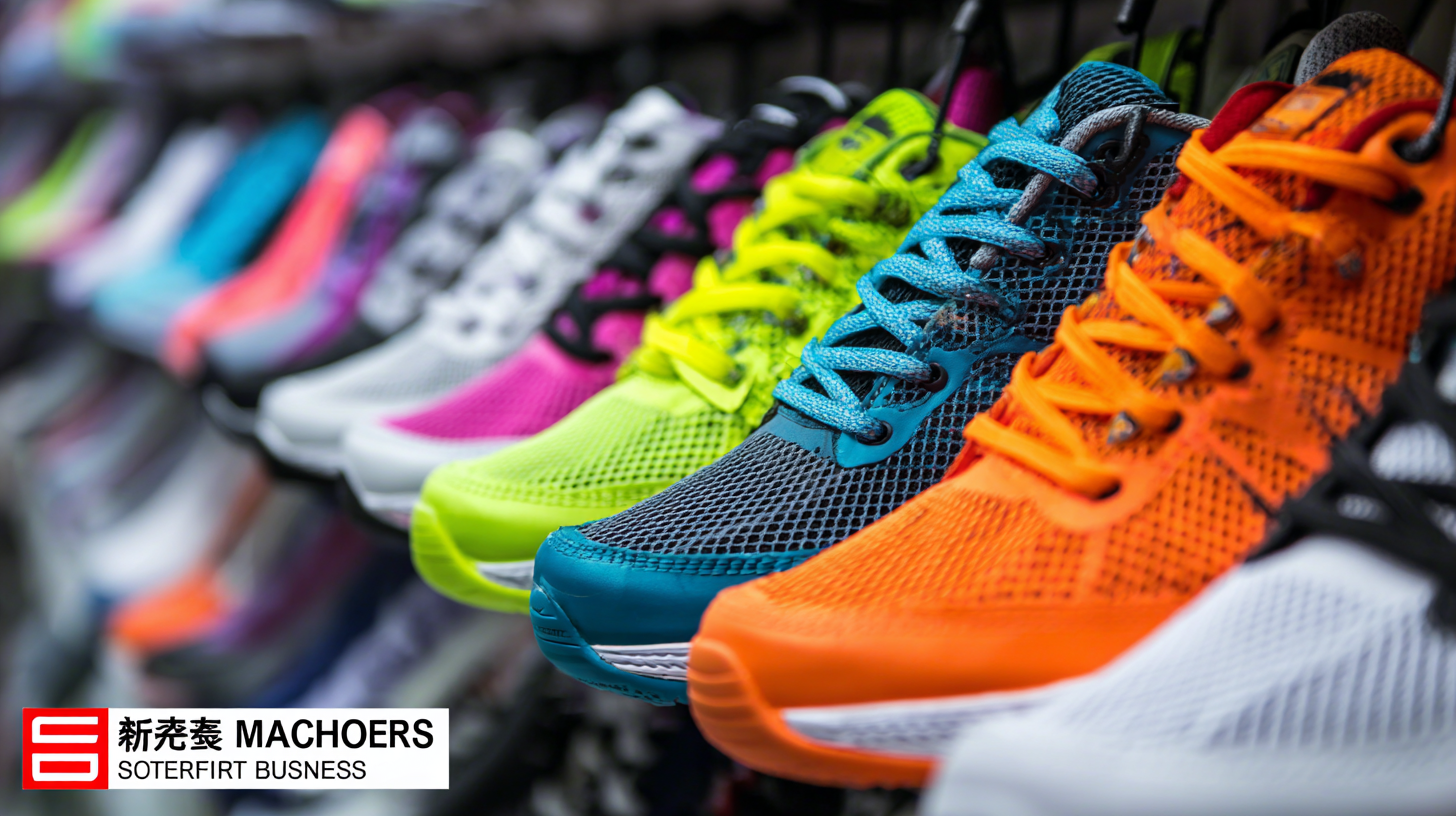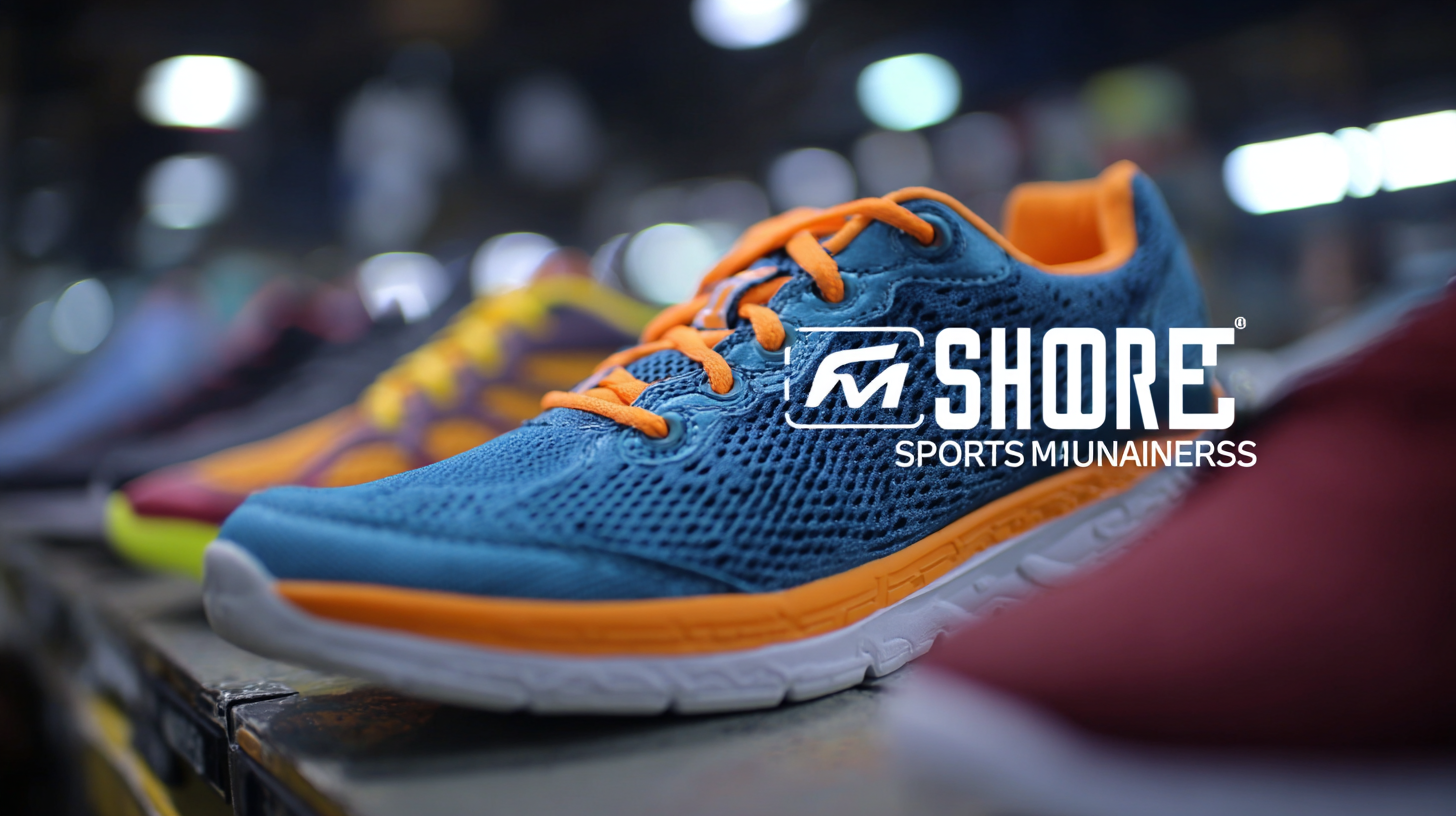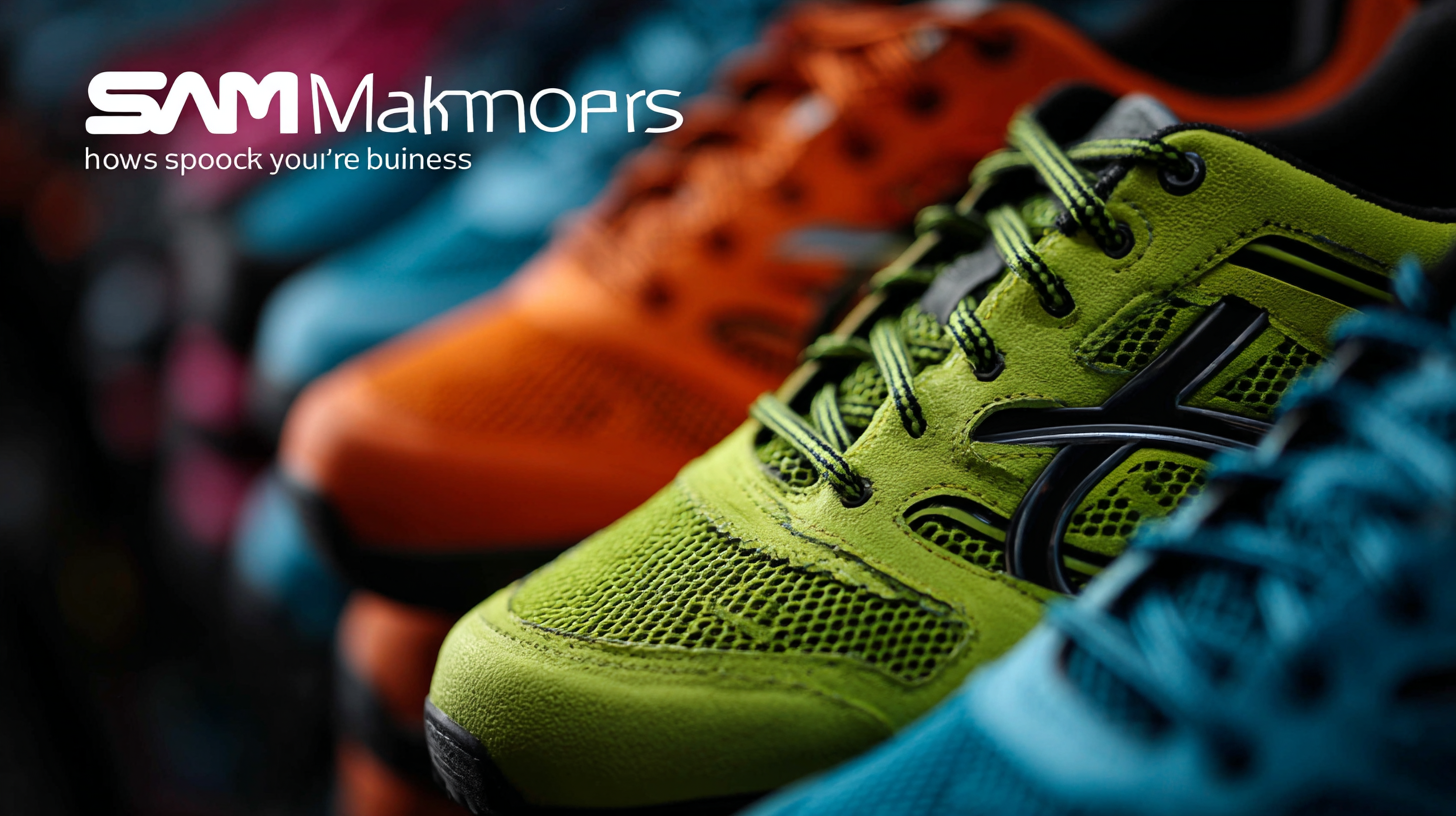
In today's competitive athletic market, selecting the right Sports Shoes Manufacturer is a critical decision for business success. According to a recent report by Research and Markets, the global athletic footwear market is expected to grow at a CAGR of 5.5% from 2021 to 2026, reaching a value of approximately $100 billion by the end of this period. This growth underscores the importance of partnering with a manufacturer that not only delivers quality but also aligns with your brand's vision. As the demand for innovative and high-performance sports shoes rises, businesses must prioritize finding a reliable manufacturer that can provide consistency and quality assurance in their products. With "Made in China" often synonymous with affordability and reliable craftsmanship, identifying a trustworthy manufacturer can set a foundation for success in this thriving industry.

When selecting a sports shoes manufacturer, the right metrics can significantly impact your business's success. First and foremost, evaluate the manufacturer's industry experience and expertise. A manufacturer with a track record in producing high-quality sports footwear will understand the latest trends, materials, and technologies. Their knowledge can help you stay competitive and deliver superior products that resonate with your target market.
Additionally, consider the manufacturer's production capacity and lead times. Ensuring they can meet your demand without compromising quality is crucial. This involves reviewing their operational processes and flexibility in scaling production up or down as per your business requirements. Communication and collaboration are also essential metrics; a partner who is responsive and transparent can help streamline the manufacturing process, mitigate risks, and foster innovation. By focusing on these critical aspects, you'll be better positioned to choose a manufacturing partner that aligns with your business goals and drives growth.
| Metric | Importance Level | Score (1-10) | Comments |
|---|---|---|---|
| Production Capacity | High | 8 | Can handle large orders efficiently. |
| Quality Assurance | High | 9 | Strict quality checks at multiple stages. |
| Pricing Structure | Medium | 7 | Competitive pricing with clear breakdown. |
| Compliance and Certifications | High | 9 | Meets international manufacturing standards. |
| Lead Time | Medium | 6 | Timely delivery with room for improvement. |
| Customer Service | High | 8 | Responsive and helpful support team. |
When selecting a sports shoe manufacturer, analyzing production capacity is crucial for ensuring a smooth supply chain. A manufacturer’s ability to scale up production during peak seasons can significantly affect order fulfillment and inventory management. It's essential to evaluate their current production capabilities and flexibility to adapt to fluctuating demand, especially in a competitive market.
When selecting a sports shoes manufacturer for your business, understanding quality control standards is paramount. High-quality standards ensure that the final product meets customer expectations and industry regulations. Manufacturers should follow rigorous testing protocols, focusing on aspects such as material durability, comfort, and performance. For instance, they should conduct stress tests on the soles and upper materials to guarantee they withstand athletic activities without compromising safety.
Furthermore, it's essential to investigate the manufacturer’s compliance with international quality certifications, such as ISO or ASTM. These certifications indicate a commitment to maintaining high production standards and ongoing improvements. Additionally, a manufacturer should have established procedures for monitoring production processes and implementing corrective actions when necessary. Investing time in evaluating a potential partner’s quality control measures can significantly impact your brand’s reputation and customer satisfaction, ultimately leading to business success in the competitive sports footwear market.
When choosing a sports shoes manufacturer, evaluating pricing structures is crucial to balance cost with quality. According to a recent report by Research and Markets, the global athletic footwear market is projected to reach $95.14 billion by 2025, growing at a CAGR of 4.8%. This increase reflects rising consumer demand for high-performance footwear, which puts pressure on manufacturers to ensure that their prices align with the quality of their products.
Costs in the sports shoe industry can vary significantly based on factors such as materials used, manufacturing processes, and brand reputation. For instance, mid-tier manufacturers may price their products between $50 to $100 per pair, while premium brands can charge upwards of $200. A study by Grand View Research noted that consumers are increasingly willing to invest in athletic shoes that promise durability and comfort, suggesting that manufacturers who offer a solid balance of quality and cost are more likely to thrive in this competitive market.
Furthermore, companies need to consider long-term costs associated with quality. Cheaper materials may save money upfront but can lead to greater expenses due to returns, customer dissatisfaction, and brand damage. Thus, businesses should conduct thorough evaluations of manufacturers, looking beyond just the initial price to ensure they align with their quality standards and brand values.

In today's highly competitive sports shoe market, the importance of brand reputation cannot be overstated. With consumers becoming increasingly discerning, businesses must align themselves with manufacturers that not only offer high-quality products but also possess a strong, positive reputation. Industry experts emphasize that a solid brand reputation serves as a critical indicator of reliability, quality, and customer service. Companies known for their commitment to ethical practices and innovative designs attract more partnerships and customer loyalty, making them ideal choices for businesses seeking to establish credibility in the market.

Moreover, as the manufacturing landscape continues to evolve, staying attuned to the trends and forecasts is crucial. The economic potential of generative AI is transforming industries by enhancing productivity and opening new avenues for innovation. Companies that prioritize collaborating with reputable manufacturers are better positioned to leverage these advancements. With targeted investments in digital infrastructure, businesses can ensure they are not only keeping pace but also setting themselves up for sustained growth, thereby navigating the complexities of the market effectively.
